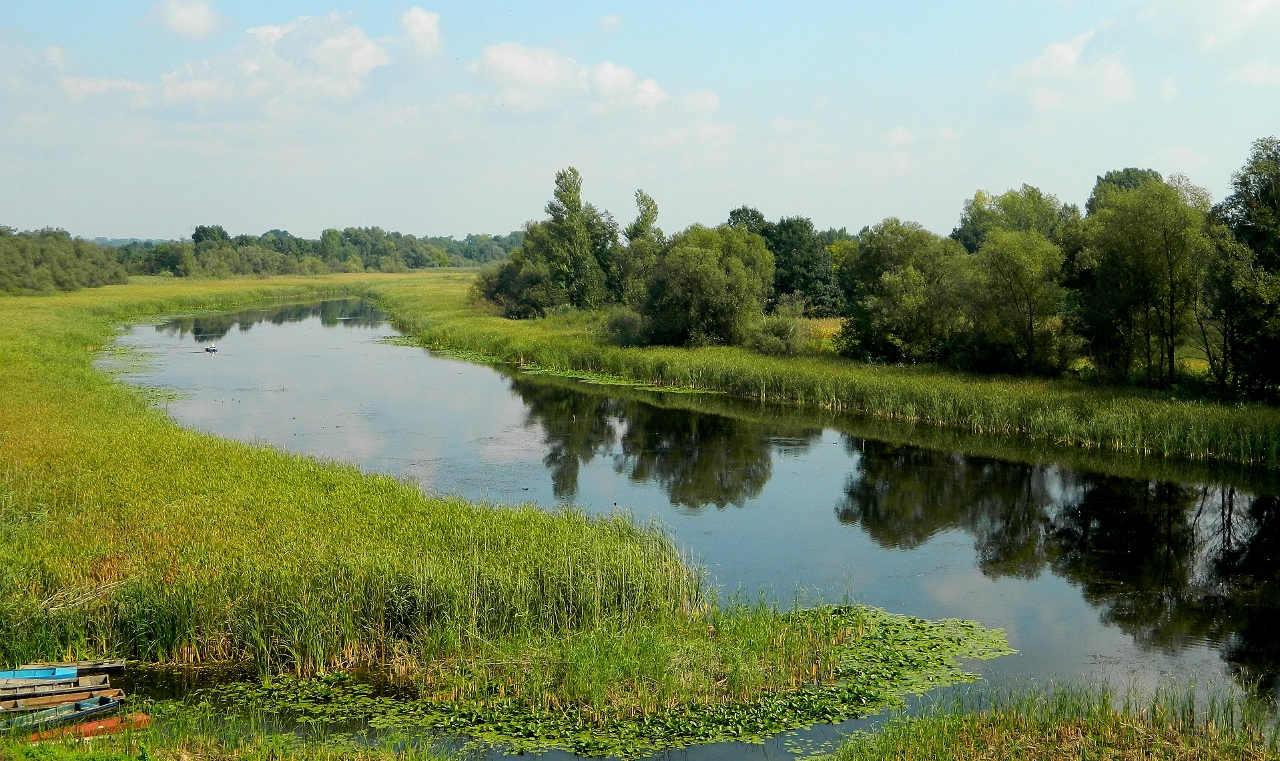We headed west to Sremska Mitrovica, the former Imperial City of Sirmium hoping to see some Roman remains. After a dusty tour of the ramshackle suburbs and graffiti-covered flood barrier at the riverfront we gave up.
It was interesting to see the condition of an everyday town which was very dilapidated, but with a terrific supermarket at its entrance.
Zasavica had been in our planning for months. It is the only well-promoted campsite in Serbia, situated in a nature reserve not far from Sremska Mitrovica.
We were treated to safe and sunny camping on a grassy level site with hotel-style facilities. Hot showers! Automatic sensors on lights and taps! A washing machine! Best of all, a charming welcome from the site’s manager who took solicitous care of us during our three days’ stay. We were one of just three vans, the others being German and Slovenian.
The nature reserve – like the campsite – has been carefully thought out and fully invested in. Its home to old breeds of pigs, sheep, donkeys, cattle, horses and chickens and two large fishing ponds full of characterful frogs.
Dragonflies, swallows, swifts and sparrows swoop around the grounds and up in the thatched rooves of the rustic restaurant and four storey wooden smoke house. They sell goulash made from the animals’ meat and pule cheese, from the milk of the donkeys and reportedly worth 1,000 euros a kilo due to its rarity. Not surprisingly we weren’t able to have a taster!
The reserve runs alongside the bulrushes on the banks of a tributary (known locally as Zasavica bar) to the green Sava which local fisherman spent Saturday morning drifting along in flat bottomed boats. In early summer, storks migrate to the park to nest. We’d missed those but did see swans, ducks, pheasants (surprisingly) and smaller song birds. A viper slithered in front of my walking boot on our stroll around the reserve.

We enjoyed conversation with Branco, the reserve’s welcoming host and its seeming heart and soul. He shared with us his love of rock and roll, Monty Python and Blackadder. He talked freely about the complexity of Serbia’s most recent history. Branco was touchingly delighted with our small gift of a British notepad and pencil and said his dream is to one day visit London.

In the village we were treated to an impromptu peek inside its newly decorated church by a local teenager, where every surface was covered by bright icon-like depictions.
Zattina cheerfully clambered with us up and down scaffolding pointing out saints that are painted in stunning blues, golds and ochres. She spoke no English and we spoke no Serbian but we understood her enthusiasm for her subject matter, and her enjoyment of showing the artistry of local painters.
It was a lovely place to end our stay in Serbia and gave us time to consider what we had seen and learned. We both want to read and understand more about this deeply complex country and its people.
Life does seem tough though and simple tasks are made onerous. It was common to see young women and girls hauling large containers of water collected from a village standing tap, and women trying to mow grass on impossibly sloping gardens and banks with ancient old electric mowers. Old men rattle along in tractors from yesteryear whilst others drive ponies and carts through town centres.
There seems to be a lawlessness, or maybe just a lack of enforcement regarding driving which makes any road trip dangerous, and the roads themselves are in desperate need of improvement. Litter is strewn everywhere and graffiti adorns many walls and road signs in towns and villages. Loose dogs can prove to be friends or foes, but are ever-present and noisy.
Talking about the country’s recent history is something to be judged carefully. As one eloquent Serb told us “our motto is ‘only unity saves the Serbs‘”, then added laughing, “…but that’s never going to happen, I don’t even agree with my neighbour!”.
Seven days is not enough time to get to know a country, but what we do understand is the people’s pride in Serbian heritage with a genuine warmth and welcome for visitors.











